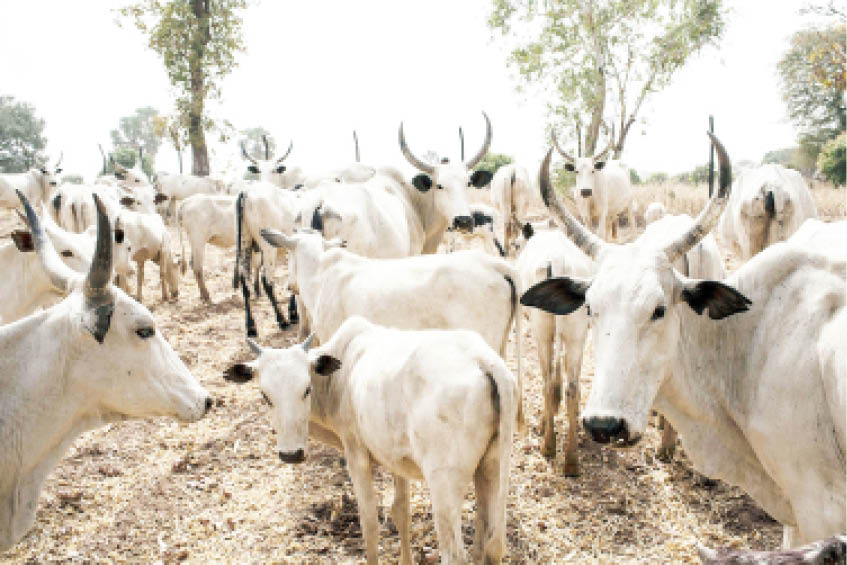There is no gainsaying the fact that these are difficult times to be a herder, whether transhuman, nomadic, or semi-settled. Gone are the days when it used to be the routine kind of hardship that every herder faced all over the world, finding sustenance for the herd and water for the use of both animals and man. Then the inevitable conflict with the settled farming community who always regarded the herder as an interloper. The urban elite is even more hostile. The mere sight of herds crossing the major highway in any Nigerian city is enough to cause deep anxiety among the city folks warranting endless vituperations in the media.
But matters have even gone beyond this. The herding community that roams all over West Africa and beyond has for all practical purposes been ethnically narrowed down to the Fulani. There are other substantial herding communities, particularly around Lake Chad such as the Shuwa-Arabs, but it is the Fulani that dominates most of the forest space from Senegal down to the Central African Republic (CAR).
There is probably no community in West Africa where you do not find the presence of one form of Fulani herder group or the other. Sometime in 2010 I was on a trip in the Niger Delta and was taken aback to find Fulani ruga settlements dotted conspicuously along the highway, from Port Harcourt to Yenagoa, the Bayelsa State capital.
Their age-long cattle routes from Senegal to the CAR crisscrossed the countries in between, making the Fulani herder oblivious to national boundaries that have been legal since the turn of the last century. They number in millions and form a substantial portion of the population in many West African countries, particularly Senegal, Mali, Guinea, Niger, Burkina Faso, Niger, Nigeria, and Cameroon. Collectively they could be the largest ethnic group in West Africa but unfortunately, most of them, particularly those moving up and down, have been stuck in a debilitating time loop, snubbing much life-enhancing progress that has been made over the years.
- Gunmen invade Obiano’s town, 15 arrested
- TRCN conducts qualifying exams for 11,629 teachers nationwide
They have been left in the bushes and forests, eking out a living in dismal conditions despite having veritable collateral in their herds. They do poorly when judged against all indices of modern progress, i.e. access to education, health, housing, water, electricity, and whatever. Their cattle, prized possessions as they are to the herders and important contributors to overall nutritional health and national wealth, are far behind what their equals give in other parts of the world, whether it is in terms of milk or meat.
And then a few groups among them elevated the individual farmer-herder conflict to wholesale banditry against hapless villages killing and maiming many innocents in the process. When that was ongoing a few bad eggs also discovered kidnapping for ransom which became widespread and inevitably developed into a national scourge. Their deep knowledge of the forests and the highways and the easy availability of hard weaponry have now turned them into hard adversaries. Our entire security apparatus is already hard-pressed with fighting the Boko Haram insurgency. Adding well-armed kidnapping bandits to the stew aggravated and overwhelmed the military.
The debate had raged over the years on what to do with these rampaging bandits and kidnappers. Identifying banditry along with herders made various state governments come up with laws to govern the movement of cattle within their domain but to no avail, as these states did not have the powers to give teeth to their stiff ordinances.
Some states, such as Benue and Ondo, in their desperation, even elevated the debate to ethnic labelling. The Governor of Benue State, Samuel Ortom, in particular, has persistently been vociferous in attacking the Fulani ethnic group for the crime of a few.
Just like the old Jew-baiting in Nazi Germany, Ortom has been making the Fulani name-calling a favourite diatribe in his political stumping. Recently at a state banquet organised by the Benue State government for the visiting 5-G governors in Makurdi, Governor Ortom categorically stated, “I will never support a Fulani man to become president.” Surprisingly, the Fulani man Ortom refers to is Atiku Abubakar his party’s flagbearer in the 2023 presidential election. It has become that bad. It was a needlessly regrettable statement and I am not surprised that Ortom ate his words when he went to Bauchi to seek the support of the governor who is of Fulani extraction.
Labelled, hated, despised, targeted, and attacked. That’s the fate of the regular herder. And it seems all the levels of government are fast running out of solutions to the herders’ problems. The firm promise by both the federal and state governments to resettle a substantial number of them is fast fretting out. Even the grazing reserves of old have long lost their lustre due to a lack of maintenance of the basic facilities that made them habitable for the herders in years gone by.
Serious encroachment on the grazing reserves is going on unchecked and I hear that some land in some grazing reserves is being sold to developers under the active watch of some state governments.
I expect the various organisations protecting the herder community such as the Miyetti Allah Cattle Breeders Association of Nigeria (MACBAN), and the Tabital Pulaaku International (TBI) should step up their acts and pressure on the various governments to do the needful on the herders’ plights.

 Join Daily Trust WhatsApp Community For Quick Access To News and Happenings Around You.
Join Daily Trust WhatsApp Community For Quick Access To News and Happenings Around You.


